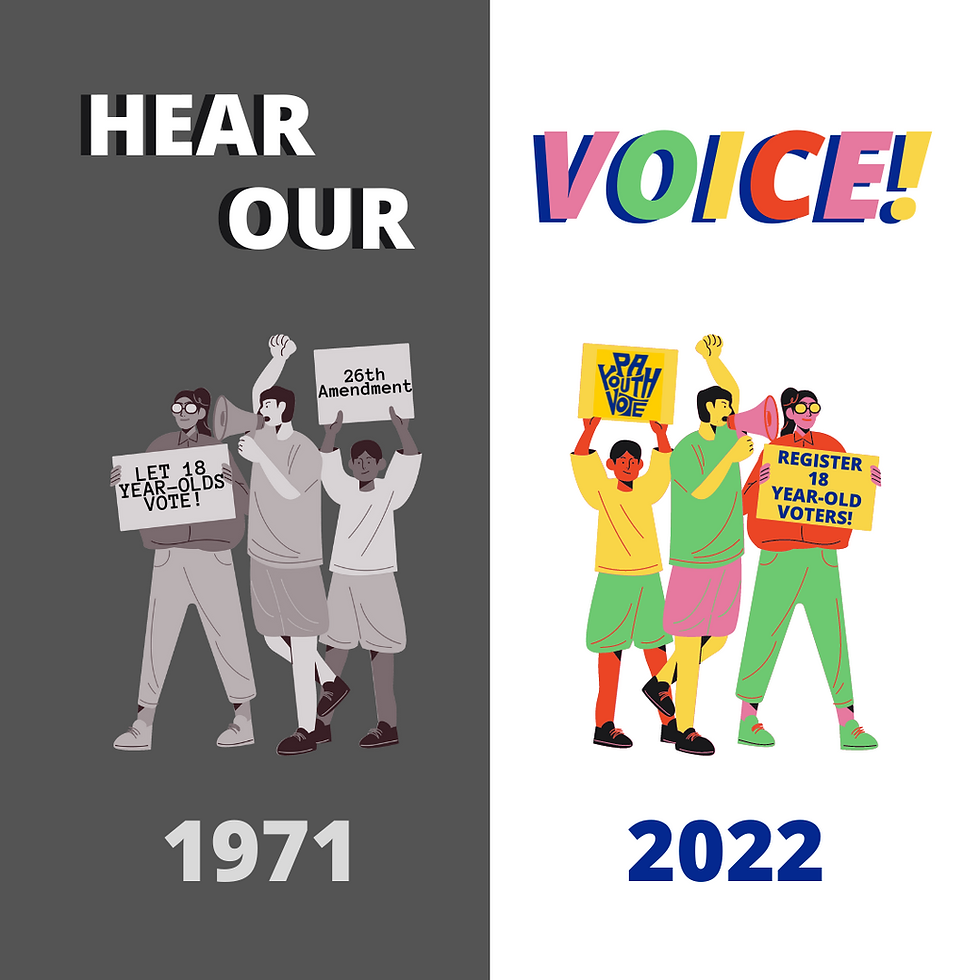The Youth Vote: Half a Century Later
- VoteThatJawn

- Feb 12, 2022
- 2 min read
Updated: Feb 24, 2022
By Gemma Hong

Youth voices matter.
That is the belief of the Philly students working with PA Youth Vote to register every 18-year old in the city. But some believe that the youth don’t know better, and that their voices should be peripheral in the political world. In a Wall Street Journal article titled “Eighteen Is Too Young to Vote,” Yale professor David Gelernter wrote, “They’ve had enough coddling. First grow up, then vote.”
“Tell that to the students from the Parkland School shooting, or the students who form movements around mental health and climate change,” says Oscar Lopez, a student at Central High School. “We are not too young to know the world.”
Two-thirds of the American population shared that sentiment in 1968 when asked if 18-year-olds should be given the right to vote. (At that time, 21 was voting age.) The 26th Amendment, ratified in 1971, granted American citizens aged 18 or older the right to vote. The amendment was the result of a 10-year nationwide and bipartisan effort. The NAACP, Young Democrats, and Young Republicans reached across the aisle because they all believed that youth voices could change the country for the better.
After so much effort, only about half of newly eligible youth voters turned out at the polls. The situation remains largely unchanged today.
Here in Philadelphia, PA Youth Vote aims to combat these low numbers by targeting one of the root causes of low turnout: inaccessible voter registration.
During elections, the students run voter registration tables and send out tens of thousands of text messages and DMs urging youths to register to vote. They also use mediums such as art, writing, social media, and even podcasts to spread voter registration information to their peers.
Their efforts are not without results — PA Youth Vote, in tandem with other Philly civic groups, caused a 157% jump in 18-year-old voter turnout rates in 2018.
However, PA Youth Vote’s work is still unfinished. They are currently lobbying the Philadelphia School Board to adopt a voter registration and education policy that will require year-round nonpartisan voter registration and engagement programming in all high schools and continuing education programs.
“We don’t just want to see a spike in voter turnout,” says Thomas Quinn, high school civics teacher and faculty advisor to PA Youth Vote. “We need a sustained program of student voter engagement.”
That’s what the School Board needs to back. It’s time to show the world it needs to listen to the youths.
Gemma Hong is an undergraduate Communication major with a love for writing creative nonfiction and boxing. She is a member of The Penn Review, the premier literary magazine at the University of Pennsylvania, and previously wrote for Wharton Stories as an assistant content producer.




Comments